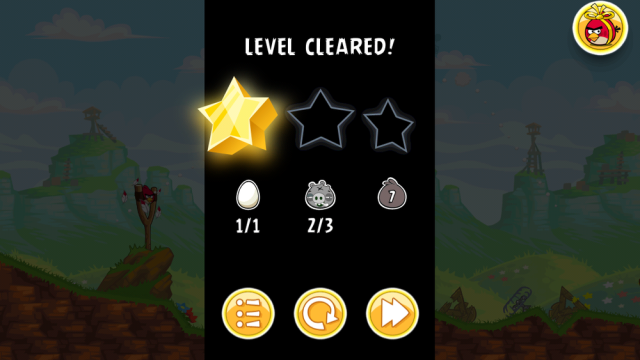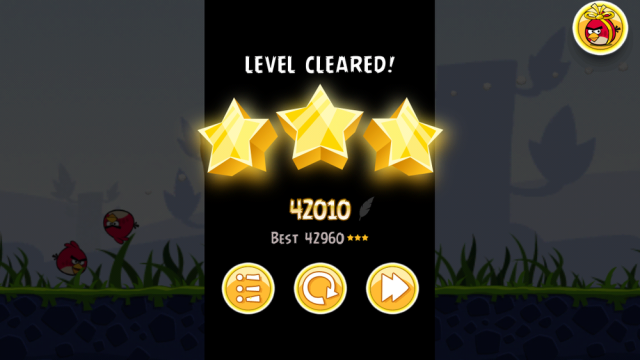After playing angry birds for way too many times, I realized the reasons why it succeeded could be applied to many businesses. I know Angry Birds is so old but the lessons are still applicable and many businesses can still make use of it.
1. Short Levels : In Angry Birds we have levels with end goal in sight. And that makes a lot of difference. People tend to focus a lot when they are near to their destination, like how students learn a lot of things day before the exam or programmers cram in a lot of code in 24 hours before the release deadline. In the programming world we have seen that companies that have adopted short/weekly releases ( aka Sprints in Agile projects) have been very successful in delivering value to the business very efficiently. Even though Angry Birds levels have no time frame in businesses we do need to have a clear time frame.
Lesson: Set short and clear goals. By taking baby steps we will achieve better results

2. Instant Feedback : The small levels just help you to get to the next level. But the feedback at end of each level that gives you 1,2 or 3 stars will motivate you to do the best and try to do the best in each level. There are two things to learn from that; to give quick feedback and quantify it. Many companies have yearly reviews and some have mid-year or quarterly reviews. IMHO its too late to fix something one gets a feedback on it a year later. Nowadays in many tech companies ( don’t know other companies who do it) employees have 1-1 meetings with their supervisor in a weekly or bi-weekly basis. Personally I always enjoy those meetings as I get to know what I need to focus and improve myself as by mid-year or at end of year I doubt anyone would remember all the things that I should have done. In the Agile methodologies we have a retrospective (sometimes mini-retrospective) meetings in which whole team comes together to see what went well and what did not in each release/sprint and get out of the meeting with action items on how to improve things. So long (6 years) I have seen those retrospective meetings being mostly useful for the whole team and the business.
Lesson: Provide instant feedback with quantifiable action items to improve.

3. Increasingly Ambitious Levels: Just because each level gets more complicated we get more interested in the game. It goes without saying, same is the case in real world. Only when an individual contributor’s job is more and more interesting with increasingly challenging tasks, a company would be producing amazing products and growing profits. Of course, both employees and managers must understand that its better to take risks and fail than not take risks at all. I understand the argument that failure is not good for business and risk should be mitigated as much as possible. But if we follow the above two lessons of having small goals and instant feedback the risk is mitigated and only small mistakes will ever occur. That way upside is huge with limited downside. It is similar buying a call option. Only by taking risks many companies have grown.
Lesson: Take small risks fail, learn and then achieve stellar results.
